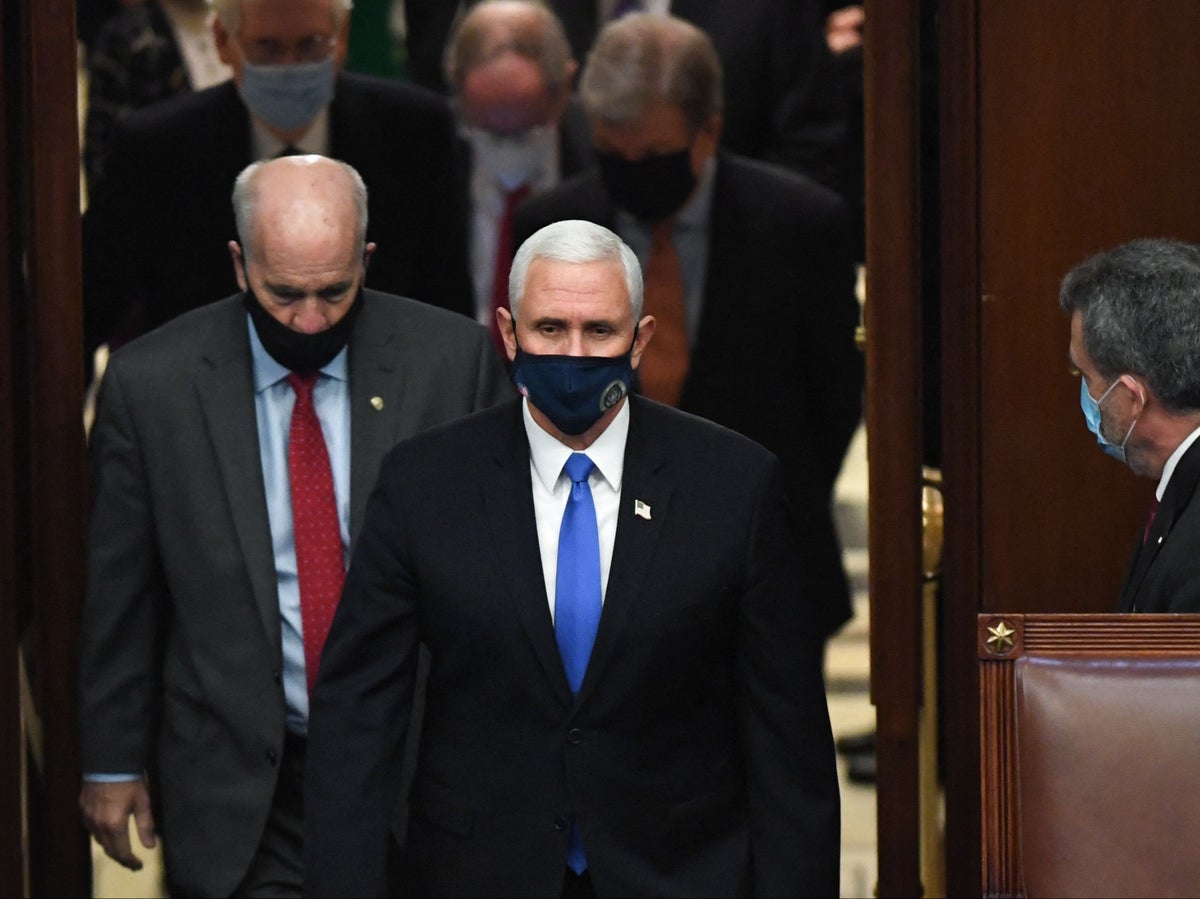
The January 6 committee has scored high ratings with its first two televised hearings, indicating that the detailed and sometimes disturbing evidence it’s gathered may be cutting through.
It abruptly postponed Wednesday’s hearing until next week, but is now pressing ahead with its next session: an unpacking of the efforts made by the Trump team to pressure Mike Pence into overturning the election in Congress.
The panel has called two key figures to testify about the pressure campaign – which culminated in Trump supporters stalking the halls of the Capitol chanting “Hang Mike Pence!” after the vice president refused to acquiesce.
Michael Luttig
Michael Luttig, a retired federal appeals court judge who once had crucial Trump lawyer John Eastman as a clerk, is reportedly set to issue an excoriating account of what Mr Trump, Mr Eastman and others did in the run-up to the riot.
Specifically, as CNN has reported, Mr Lutting has outlined in a written statement that the events of January 6 could have tipped the US into political catastrophe.
“It is breathtaking that these arguments even were conceived, let alone entertained by the President of the United States at that perilous moment in history,” the statement reportedly reads. “Had the Vice President of the United States obeyed the President of the United States, America would immediately have been plunged into what would have been tantamount to a revolution within a paralysing constitutional crisis.”
Mr Luttig’s ultimate conclusion about the pressure on Mr Pence matches that given by committee vice chair Liz Cheney in a video this week. As he puts it, the day of the Electoral College certification “was the final fateful day for the execution of a well-developed plan by the former president to overturn the 2020 presidential election at any cost.”
Greg Jacob
Greg Jacob was Mr Pence’s most senior legal aide at the time of the riot. He appears to have played a key role in helping the vice president understand why the proposals he was being bombarded with were unlawful.
In a memo from the day before the attack recently released by Politico, Mr Jacob wrote to his boss that Mr Eastman “acknowledges that his proposal violates several provisions of statutory law”, and that the Trump lawyer’s proposal is contradicted both by existing Supreme Court decisions and a case decided on 4 January by the Washington DC District Court.
“If the vice president implemented Professor Eastman’s proposal,” Mr Jacob wrote in the memo, “he would likely lose in court. In a best-case scenario in which the courts refused to get involved, the voice president would likely find himself in an isolated standoff against both houses of Congress, as well as most or all of the applicable State legislatures, with no neutral arbiter available to break the impasse.”
Among the main questions at issue in this part of the committee’s inquiry are the matter of how intense the pressure on Mr Pence was, and what happened after it became clear he would refuse to carry out the flawed and illegal Trump-Eastman plan. Mr Jacobs’s memo and his discussions with Mr Eastman and the vice president leading up to the insurrection will be key to understanding what ultimately transpired.







